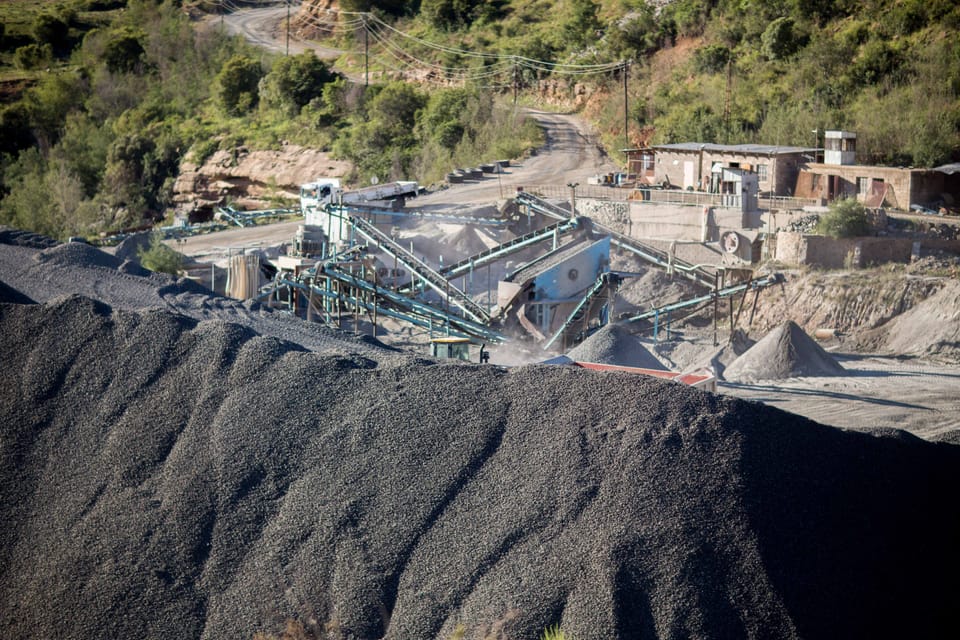Miners commit to 'nature positivity' after Norway greenlights deep sea mining

One third of the mining industry has committed to become “nature positive” by 2030, as Norway approves deep sea mining exploration in its waters and a new report sheds light on the environmental impact of mining nickel.
This week in Davos, the 24 members of the International Council on Mining and Metals (ICMM), which together represent a third of the mining sector, committed to “take urgent action to support a nature-positive future by 2030”.
The five-point plan, adopted by Anglo American, BHP, Codelco, Rio Tinto and Sibanye-Stillwater, among others, includes the protecting all legally designated protected areas, halting biodiversity loss across operations and value chains, partnering with local and indigenous communities to restore landscapes and “acting to change the fundamental systems that contribute to nature loss”.
This is the latest sustainability commitment made by mining leaders in an effort to ensure the increased mineral demand fuelling the net zero transition doesn’t cause more environmental damage – a top priority for investors in the sector.
Controversial deep sea mining approved in Norway
The ICMM pledge applies to activities across land, freshwater, oceans and atmosphere, but it’s unclear where the organisation’s members stand on deep sea mining – a controversial practice seen by some as necessary to meet the world’s demand for so-called ‘green minerals’ used in batteries and electric vehicles.
The Norwegian Parliament voted to allow mining firms to explore deposits in its seabed, but the companies expected to apply for licences are mostly startups created for this specific activity. Several electric vehicle manufacturers appear opposed to this practice, so it remains to be seen whether tier one miners will choose to get involved in environmentally risky deep sea exploration.
But even if they don’t jump on the ocean bandwagon, miners (including those that mine green minerals) still have a lot of work ahead to become truly ‘nature positive’.
Nickel sector destruction in Indonesia
A new report published this week has also highlighted the widespread deforestation and pollution caused by nickel mining and processing in Indonesia – the world’s largest producer of this battery mineral.
Using satellite imagery to map the amount of forest loss, NGO Climate Rights International determined that approximately 5,331 hectares has been deforested by 31 nickel mining concessions in the country – and the data obtained covers less than half of the total 66 concessions currently in operation.
The damage is mostly associated with Chinese companies Tsingshan, Huayou, and Zhenshi, none of which are members of ICMM.
Environmental and human rights concerns
Most of the council members have taken decisive steps to improve their climate performance: many are transitioning their power sources to renewable energy and deploying electric trucks on mine sites, for example.
Others are even adjusting their business models and parting with polluting business segments to focus entirely on green transition minerals. Teck Resources, for example, recently sold off its last remaining coal mine to Glencore in a move to ensure “continued growth as a major Canadian-based producer of copper and other future-oriented metals”. And despite this acquisition, Glencore itself is reportedly looking to exit the coal business.
(This type of forward-looking strategic business decision is exactly what speakers at this CSO Futures event believe sustainability governance should be.)
But as they increase their focus on environmental sustainability, miners should also crucially pay more attention to their social impacts: looming new regulations will soon make environmental and human rights due diligence across supply chains a legal obligation for more than 16,000 corporations with EU operations.
Glencore, for example, is one of the companies mining cobalt in the Democratic Republic of the Congo (DRC) – where the activity is associated with land grabbing and human rights abuses.
Read also: Supply chain sustainability and social impacts – more integration needed







Member discussion